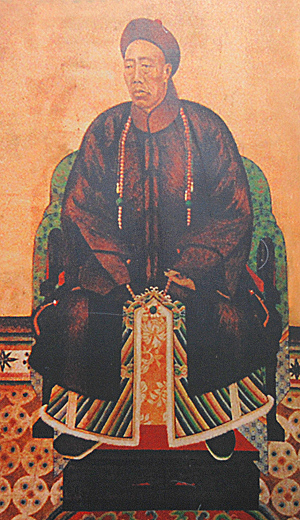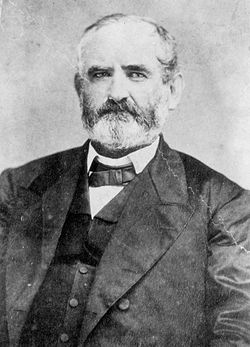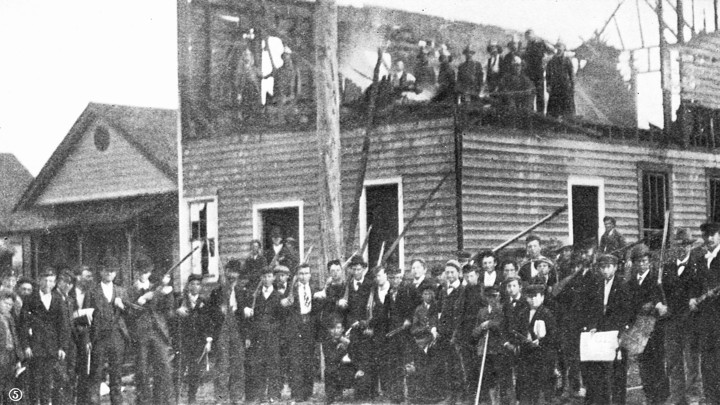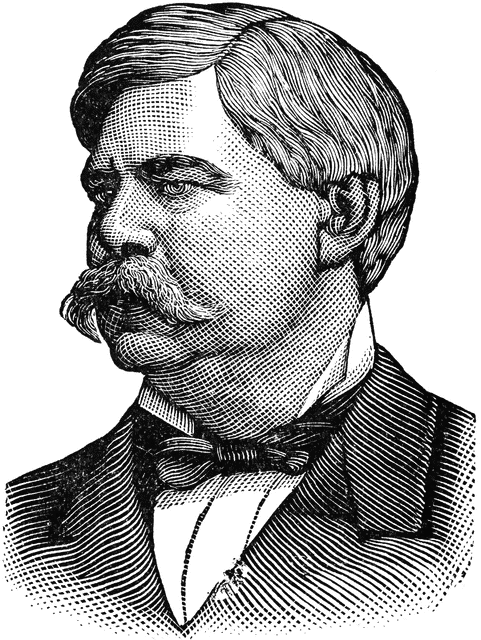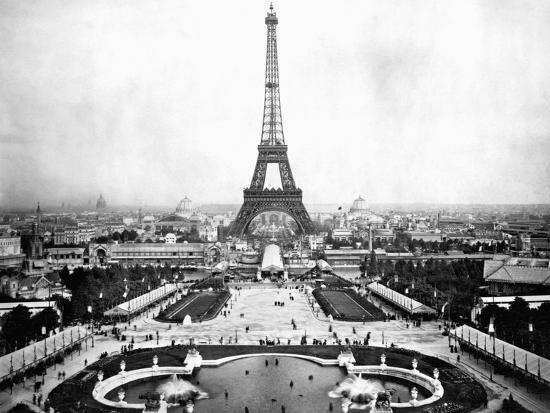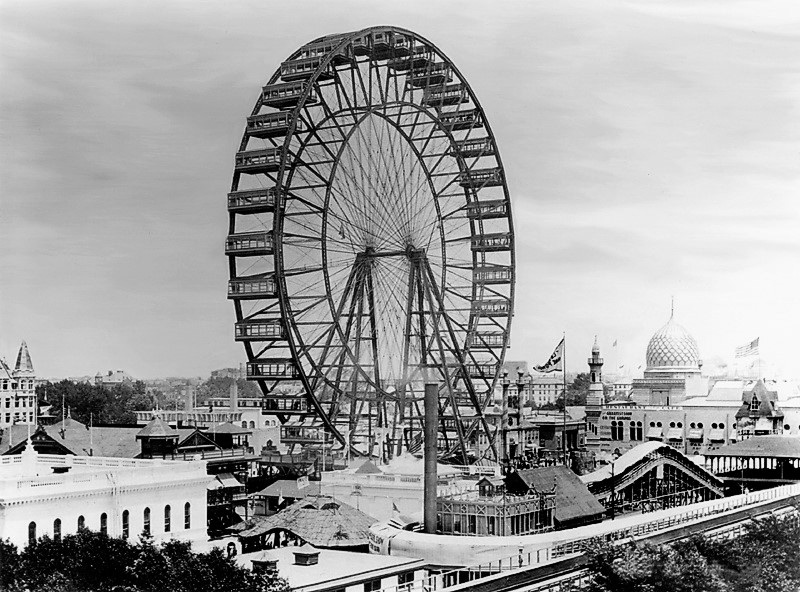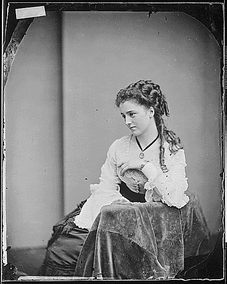The Union is about to use the phrase "Better Dead Than Red" in a whole different context
The Red Revolution and the Rise of Zebulon Vance
The Red Revolution of 86 was a long time coming in Carolina. The economy was still decrepit from the utter catastrophe of the Great Disturbance, and the people were desperate. Millions of acres of farmland lay fallow, as farmers drowned in seas of bankruptcies, tax raises, and bad loans. The middle class was watching its living evaporate as ever fewer people could afford their goods. Even the unofficial aristocracy of the Confederation was starting bleed, and rather badly at that. Meanwhile, racial tensions that had been heating for years since Emancipation boiled over into an almost open race war, with whites lashing out at blacks in riots and lynchings, and blacks striking back with their own riots, as well as terrorist bombings. Most concerning was the number of blacks turning to the AFC for salvation. After Adelbert Ames, an AFC missionary on a secret mission in the South, stirred up the black population of Spartanburg to turn their weapons on unarmed white people in town on April 8th 1885, panic swept the nation. The Confederation's stores ran out of ammo, powder and weapons within days. Chancellor Holden called in the 15th Cavalry to crush the rebellion in Spartanburg, but the damage was done.....
It didn't help that Holden was deeply unpopular. He had risen to power through political wheeling and dealing, and was seen as out of touch by the population. Within Raleigh proper, the House of Citizens derided his bullying, power-hungry ways, while the military secretly thought him to be a dishonorable scoundrel who had, as General John Bell Hood put it, "the moral backbone of one of those French chocolate eclairs." Nonetheless, the powerful respect the nation held for the office of Chancellor prevented a coup or rebellion. As Holden went into the 1886 election for Chancellor, he still felt secure in his position. The rival Jacksonian party was in disarray, and although concerned about the League of the South's rise, he felt sure that he could beat them in the upcoming election.
A popular racist pamphlet sold shortly after the Spartanburg Massacre
However, this was not necessarily the case. The LOS had a fair amount of electoral support, albeit a relatively small amount of actual believers. While only about 15% of the population subscribed to Normanism, plenty of folks liked the idea of punishing Holden and his opponents in the Jacksonian party for their incompetence and apathy. Indeed, as one Carolinian would later recall in an interview conducted by the
Stockholm Recorder, who was running a series of stories on the new order in Carolina, "
Most of us didn't give a damn about the Norman race nonsense the League was pushin. A lot of us still don't, even if our numbers have shrank since '86. What I cared about then, and still care about now, is honesty and results. I'll say this right now, a lot of those League fellers are absolutely bonkers, what with all that race theory malarkey and wanting to "restore the Old South." But they're honest-to-God patriots, who know how to get things done, don't think they're superior to us, and won't steal from us." Nonetheless, thanks to gentlemen like this anonymous Carolinian, and the fiery speeches of Zebulon Vance and Joseph E Johnston, the LOS had a strong start to the election season. This took Holden by surprise, and he was immensely distressed by the idea of losing power "to those damnable League lunatics."
To prevent this, Holden secretly began giving weapons, ammunition, and cash to his more radical supporters, and began ordering that they attack LOS rallies. Throughout the nation, Holdenites viciously harassed League members, and even killed them in an effort to keep Holden's power secure. However, despite the Chancellor's attempts to censor newspaper coverage of these riots, massacres, and harassment campaigns, plenty of newspapers were still able to spread knowledge of the Holdenites violent acts across the nation. This inflamed the general public, and hardened the zealotry of the LOS Redshirts, who were now convinced that this wasn't so much an election as a "test from God." LOS supporters began striking back, and striking back hard, attacking pro-Holden rallies and assassinating pro-Holden officials who had turned a blind eye to the violence. As fighting spread from the cities to the countryside, the military, already demoralized and contemptuous of Holden, was spread thin trying to contain the constant violence.
Carolinian Cavalrymen hunt down political radicals outside Raleigh in January 1886
As election day came up on November 12th, 1886, military leaders urged Holden to deploy troops to the polls in order to protect the integrity of the vote. The Chancellor dismissed them, claiming that their "excellent work cleaning up the radicals" meant that the vote would be fair and open. In reality, this was a cover for the exact opposite to happen. Holden was so worried about a potential defeat, he sent in armed thugs to intimidate voters and stuff ballot boxes to ensure his "victory." Shortly after voting ended, news of this utter corruption reached both the LOS leadership, and the press. Vance was outraged beyond all belief. Although the LOS had engaged in voter intimidation in the past, Vance ended this after 1884 calling it "a dishonorable practice bound to make us less popular, not more so." When Holden found out that the press knew, he ordered the military to go in and shut down the newspapers for "spreading treasonous, seditious lies about our Chancellor." The military openly refused, and the Chancellor was forced to back off after some members of the brass implied a coup might occur if he pressed the issue. The LOS declared the election illegitimate and demanded a new one be held, one where soldiers would be present to guarantee that no voter fraud occurred. Holden responded that no new elections would be held, and called the LOS "A bunch of Beutelist scum in red shirts."
Vance was positively furious when he heard the news. The Knights of the Golden Circle (minus Forrest, who was in Jacksonland) held an emergency meeting. They decided to hold mass demonstrations in Columbia and Wilmington, two LOS strongholds, on December 1st to voice their displeasure. Holdenites promised to confront the Redshirts to "prevent a rebellion." Ironically, they would wind up sparking the very rebellion they feared. In Wilmington, on the day of the demonstrations, the LOS Redshirts led by Zebulon Vance himself were confronted by a mob of Holdenites that had come from as far away as Newport News. In a moment of clarity, both Vance and the Holdenite leader, Curtis Hooks Brogden, realized that a violent clash would be disastrous, and successfully prevented their men from fighting. Part of this had to do with how heavily armed both sides were. The Redshirts had the finest weapons money could buy, including a handful of Coffee Grinders, all donated by rising industrialist and ardent LOS backer F. W. Dawson. The Holdenites had older weapons, but made up for it by having 1.5 times as many people on their side.
However, both groups did exchange verbal barbs. In particular, a 22 year old Holdenite got into an insult-trading contest with a 15 year old Redshirt. Eventually, the older man was so angered by the Redshirted teen that he picked up a loose paving rock, hoping to hit the youngster in the arm and get him to "shut up." Unfortunately, he aimed as the boy turned around, and hit the 15 year old right in the back of the head. He fell with a thud. The boy's father, a fellow LOS member, rushed to his side. The
Lyons Gazette recorded what happened next:
"The boy's father shook him, demanding he get up and defend his honor. As the child remained unresponsive, his father began yelling, including obscenities this paper will not print. Finally, the older man picked him up, and saw the pool of blood that had formed under his son's head. A Redshirt doctor rushed to the front, and checked the boy's pulse. The doctor, with a look of pure fury, declared the boy dead. His assailant turned white as snow, yelling "I didn't mean to kill em!" The fallen lad's father let out a roar of anguish, more beast than man. Then, with a blank expression on his face, and with the gleaming eyes of a man who has lost everything, the boy's father arose. He marched up to one of the Coffee Grinder squadrons, ripped the gun and several ammo belts right out of their hands, and returned to his son's side. The begrieved patriarch exclaimed "Father forgive me for what I must do!" Then, he opened fire on the crowd of Holdenites."
Redshirt aligned citizens in civilian dress after the Battle of Wilmington
In the ensuing gun battle the Redshirts routed the Holdenites, who were utterly demoralized by the sight of a crazed, grieving father slaughtering them with a Coffee Grinder like an enraged demon. Vance, wearing his Great American War uniform, led the charge, narrowly escaping several Holdenite bullets. After the enemy disappeared, Vance gave a roaring speech declaring that the Chancellor "murdered that poor boy today." He then announced his intention to march on Raleigh and depose Holden. As news spread of the disastrous events in Wilmington, the whole nation was horrified. Anti-Holden Carolinians, LOS or otherwise, began openly protesting and revolting, calling for Holden's resignation. In Jacksonland, Governor Forrest declared that he no longer recognized Holden as the legitimate Chancellor, and seized total power over the colony. The enraged Chancellor declared martial law, and sent the 35th Infantry to Columbia to "make an example of the Redshirts." However, the Redshirts had already fled the city to join Vance in Wilmington, and the only protestors there were peaceful. This news was telegramed to Raleigh. The response read "
Treason is treason regardless of whether or not the perpetrators are armed. Make an example of Columbia gentlemen. Hark the Sound!"
Utterly shocked that their Chancellor would call for them to fire upon unarmed civilians, no matter the situation nationally, the 35th mutinied. They announced their intention to join the March on Raleigh, declaring Holden a "War Criminal and Federalist style tyrant." Across the nation, the military was barely keeping the situation under control, and many feared that the Yankees would take advantage of their disarray and invade the Carolinas. The nation's elites and military brass had had enough. They weren't going to burn half their country to the ground on the behalf of a Chancellor none of them actually felt any loyalty towards. On December 19th, with the Redshirts closing in on Raleigh, the military brass and House of Citizens ordered the Confederation Guard, the Chancellor's personal cavalry/bodyguard detachment from Jackson onward, to arrest Holden for treason, murder, and subversion of democracy. The Guard, who had hated Holden from day one, complied. Some of the cavalrymen surrounded the Chancellor's mansion, while others dismounted and stormed in. Holden and his whole family were arrested, and when the Redshirts arrived on the 21st, Vance was invited in by the House of Citizens.
Redshirts battle the 2nd Rifle Regiment in South Carolina
A bargain was struck. The military and House would not allow a revolutionary radical to seize the Office of Chancellor. Vance also knew that if the military held new elections without his approval and backed a candidate he hated, the majority of Carolinians would support them. His revolution had succeeded because everyone hated Holden, not because they loved the LOS. The compromise was the creation of the Office of Protector-General of the Confederation. Vance would be appointed to the post by the interim government, and confirmed by the new Chancellor after new elections were held, ones which the League would not participate in. They would be allowed to run for the House of Citizens however. Furthermore, the Protector-General's office was essentially promised to the LOS, with the League's leader being informally granted the spot. The Protector-General would serve as an "advisor to the Chancellor and Protector of our Liberties," and would also be the head of the new Confederate Security Bureau (CSB) a secret police force designed to suppress "Beutelist and Negro insurgency." In practicality, this meant that the Redshirts would be receiving new uniforms and badges, and become an actual government body. Finally, provisions were allowed to accommodate the League's legislative agenda, mainly focusing on land reform, industrialization, and the institution of a mandatory draft. The deal was announced to the world on Christmas Day, 1886, to thunderous approval by much of the citizenry. Even if they didn't buy into the League or Normanism yet, the people saw Vance as a hero who fought tyranny and won. With his newfound powers being written into the Constitution, and with the League now claiming roughly 25% of the nation's loyalty, it truly seemed like Vance was slowly reshaping the Confederation.....
LOS aligned Great American War veterans beat back Holdenite forces while waving the flag of the "Confederation of the South."
Members of the Jacksonland Security Force attack revolting natives in Jacksonland during the Red Revolution
The Honorable Zebulon Baird Vance, Protector-General of the Confederation of the Carolinas.

